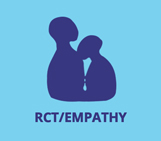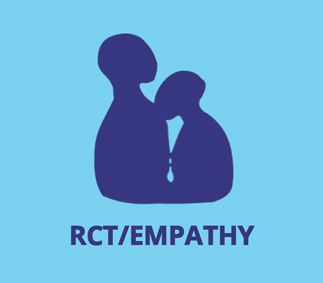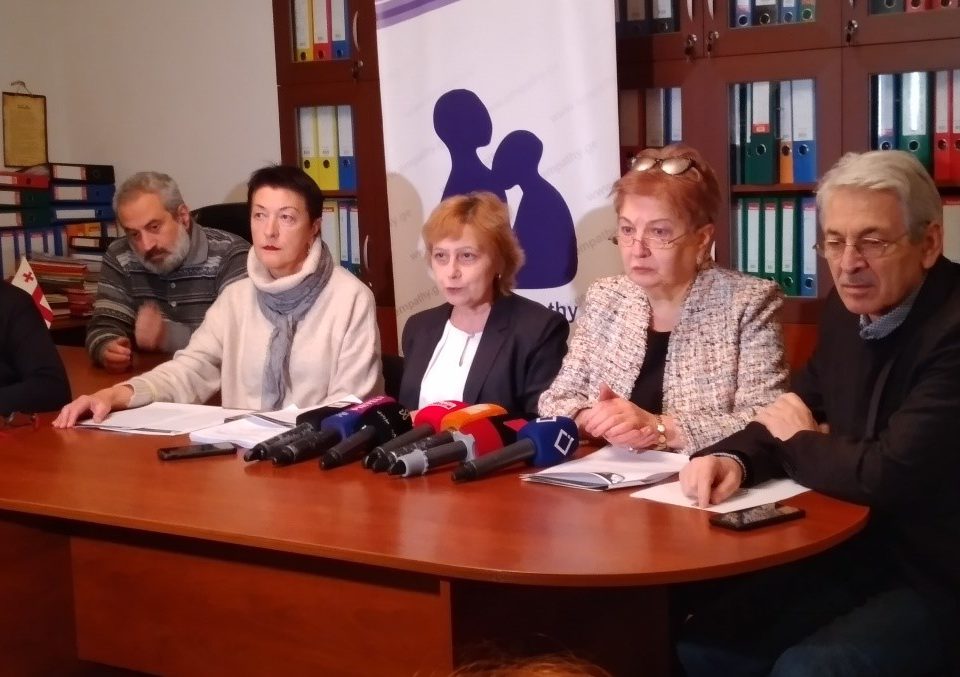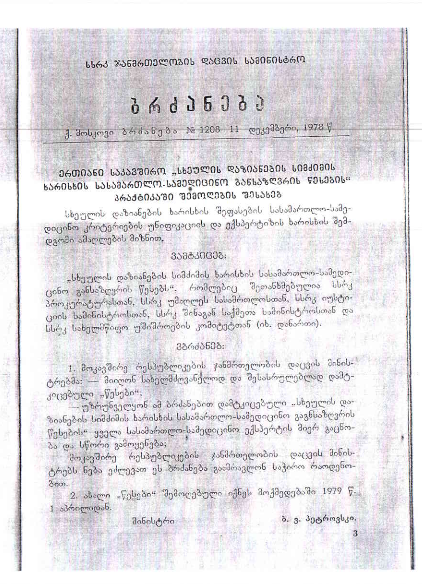- Hot Line
- + 995 599 88 54 68
- + 995 599 88 54 28

The Caucasian Regional Training – Workshop “Physical and Mental/Psychological Consequences of Torture
October 2, 2010
Charity Action – IDPs, former prisoners – women and children Art Work Sale – Exhibition, 20 of December, 2010, RCT/EMPATHY, Georgia
December 17, 2010Presentation of International Project (Press – Release)
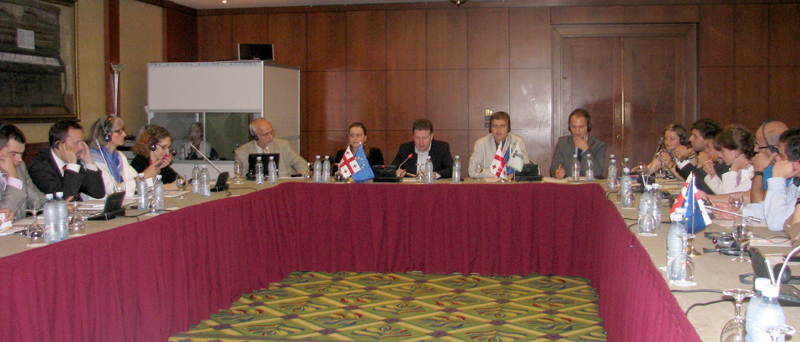
The Presentation of International Project – “Use of forensic evidence in the fight against torture” – of the International Rehabilitation Council for Torture Victims (IRCT, Denmark, Copenhagen) was held at the Court Yard Marriott Ballroom, from 12.00. A.M. till 14.00. P.M. on 28 of September 2010. (4 Freedom Square, Tbilisi, Georgia).
This project is funded by the European Union (Project No EIDHR/2007/71).
The project will run together in 4 Countries across the World.
Watch video broadcasted on chanel “Rustavi 2”
Following programme was implemented during this presentation:
Introduction: Dr. Mariam Jishkariani, RCT/EMPATHY, Georgia
Welcome:
Mr. Michal Nekvasil, Second Secretary, Deputy Head of Operations, of the European Union Delegation to Georgia
Mr. George Tugushi – Public Defender of Georgia
Key Speakers:
Mr. Asger Kjaerum – IRCT, Legal coordinator of the Project
Dr. Onder Ozkalipci – IRCT, Medical Director
Short description of the Case and developments on the Country level – RCT/EMPATHY, Georgia
Session: Questions and Answers: for Mass – Media and invited guests.
In many countries in the world, one of the main obstacles to effective prosecution of torture cases is the lack of access to clear and reliable medical evidence to prove such allegations. This project aims to fight impunity by generating forensic evidence that can be used in the prosecution of alleged torture cases in national and regional courts and by strengthening the capacity for medical examinations according to internationally recognized principles, i.e. the Istanbul Protocol.
Georgia is one of the partner Countries for the project and RCT/EMPATHY is the local implementing partner. Project activities in Georgia have a dual aim: First, to support prosecution of torture cases by producing high quality forensic medical evidence through examinations by local and international experts in forensic medical and psychiatric documentation of torture. Second, to implement an advocacy campaign seeking to improve the Georgian system of investigating and prosecuting torture cases. This campaign will predominantly focus on facilitating the use of forensic medical evidence.
This is the first time internationally recognized forensic medical experts (including psychiatrists) will be involved in examinations of torture cases in Georgia. We hope that this international presence can contribute to an increased role of forensic medical evaluations in the fight against torture, especially in implementation of the National and International obligations on prompt, impartial and effective investigation of torture cases. Furthermore, it might facilitate the establishment of a system of fully independent medical experts with involvement of international experts to examine torture cases in the future.
Background
On 1 April 2009 the IRCT launched a new three-year EC-funded project “Use of forensic evidence in the fight against torture”. The project aims to fight against impunity by strengthening the capacity for medical examination according to internationally recognized principles, i.e. the Istanbul Protocol, and generating forensic evidence that can be used in the prosecution of alleged torture cases in national and regional courts and/or human rights institutions.
The specific objectives are:
- To increase the availability of high quality forensic documentation concerning allegations of torture
- To use and facilitate victims’ access to forensic documentation as evidence in legal proceedings
- To increase awareness about the significance of medical forensic evidence, victims’ rights and state obligations under the UN Convention Against Torture to investigate and prosecute perpetrators
The IRCT Secretariat, in partnership with the Forensic Department of the University of Copenhagen, has set up an international focal point for forensic expertise, which will draw upon an international advisory group of international forensic experts as well as on the extensive experience and expertise accumulated through previous projects on the documentation of torture.
Rehabilitation centres in five countries in five regions will act as national focal points to identify torture cases where examination support is needed and which could be taken forward to national or regional courts. Via the international focal point and the advisory forensic experts group, the expertise required to perform forensic examinations of torture survivors will be channeled to health professionals in the five target countries through on-case examination support and peer supervision.
The expert group will further provide support in examining torture victims in at least ten representative cases at the international, regional or national level to establish best practice examples. Thus, medical reports will be submitted in at least 15 court cases concerning allegations of torture in order to strengthen the evidentiary basis in these cases and will be supplemented by expert testimony in the proceedings where relevant.
Additionally, the international focal point and the expert group will map, gather and further develop materials relevant to the medical examination of torture victims and consequent legal proceedings. The involved experts will participate in relevant human rights and health conferences with a view to exchanging knowledge and presenting the project’s objectives and findings.
This work will be supported by targeted advocacy towards judges, prosecutors, lawyers and health professionals. Moreover, via campaigning and advocacy activities throughout the project, as well as a major conference at the conclusion of the project, policy-makers, health and legal professionals and the public at large will have a better understanding of and dedication to promoting the fight against impunity.
Objective
The specific objectives of the partnership between IRCT and the Centre are:
- To increase awareness of the problem of torture in Georgia and victims’ rights and state obligations under the UN Convention Against Torture to investigate and prosecute perpetrators;
- To promote the recognition of medical evidence among relevant stakeholders, including health and legal professionals, governmental and academic institutions and national courts through a range of advocacy activities;
- To strengthen the capacity of the Centre regarding medical documentation of torture according to international standards;
- To carry out strategic litigation by submitting a medico-legal report as evidence in minimum one case of torture and bringing forward the case in national legal proceedings with the aim to establish precedent and national jurisprudence;
- To draw on national experience and expertise in IRCT’s international advocacy efforts to promote medical forensic evidence and to share experience and project findings within the IRCT network.
Asger Kjaerum, Project legal Coordinator, IRCT
Legal Officer & Geneva Representative
E-mail: akj@irct.org
Direct: +41 (0)76 221 5959
International Rehabilitation Council for Torture Victims (IRCT)
Borgergade 13
P.O. Box 9049
1022 Copenhagen K
Denmark
www.irct.org
Mariam Jishkariani
The President of the RCT/EMPATHY
Local Contact: 23 Kandelaki Str., Tbilisi, 0160, Georgia.
Director of the Programme Dr. Mariam Jishkariani
Phone: +(995 32) 38 10 15;
Fax: +(995 32) 38 10 33
E – mail: centre@empathy.ge
www.empathy.ge
